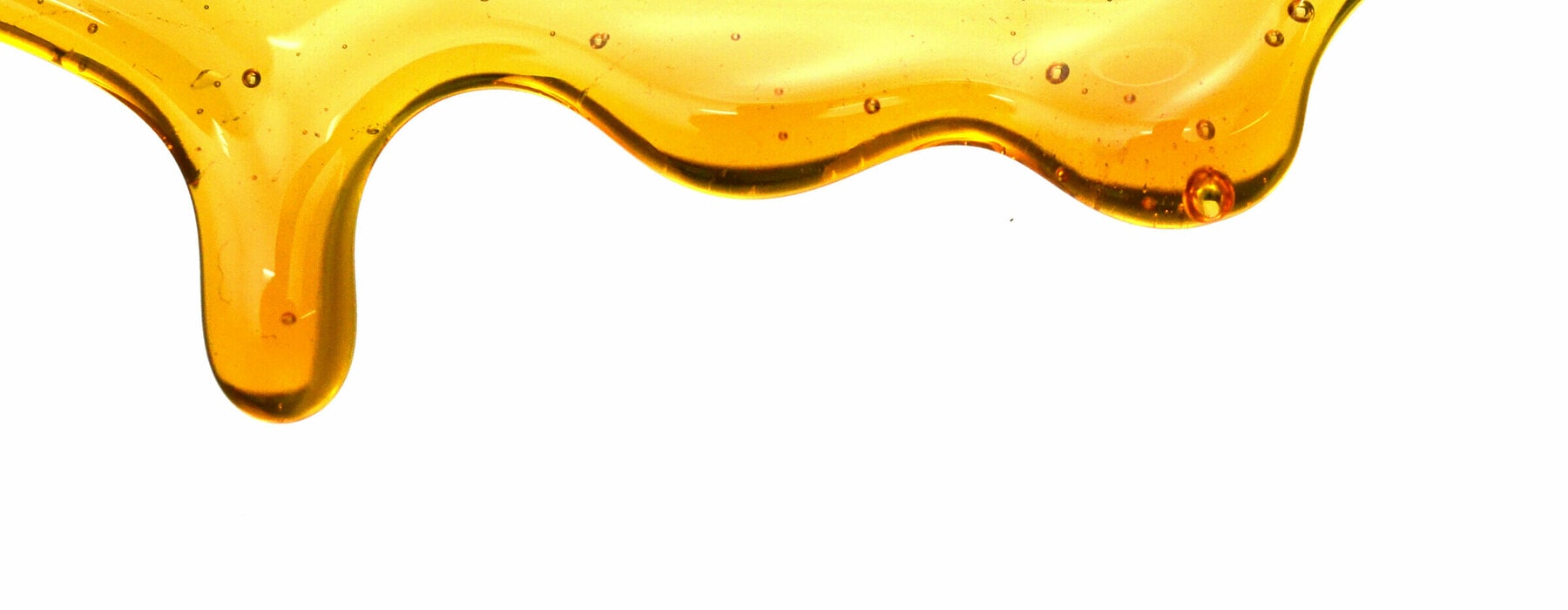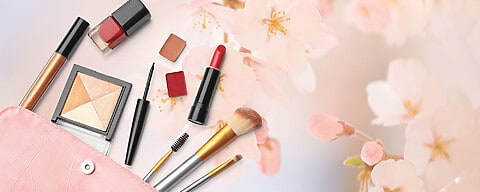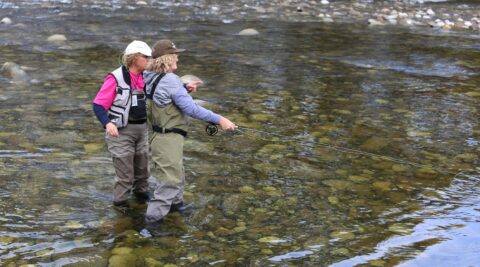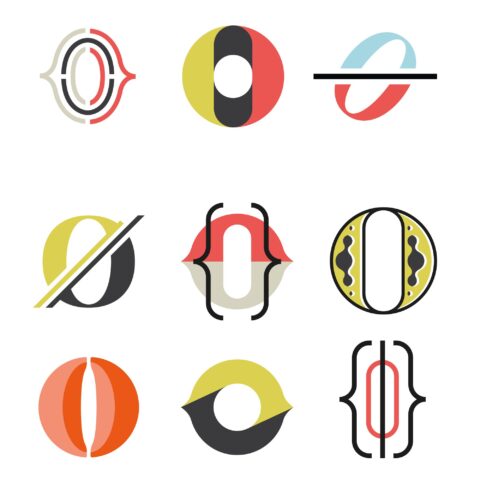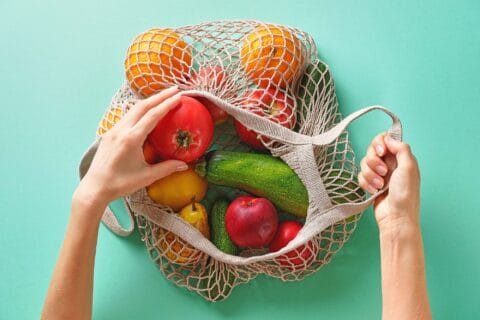Whenever I got a sore throat as a child, Mum gave me honey on a spoon with a crushed Disprin. The gooey, golden liquid slid down my throat, always making me feel better. Over the years, I’ve spent many winters guzzling lemon and honey drinks to soothe colds and sore throats, and sucking on propolis lozenges rather than cough drops.
Many centuries ago, the Romans, Egyptians and Greeks began using honey as a medicine and wound healer. Honeybee products – honey, propolis and venom – have been used medicinally for thousands of years. However, it was only relatively recently that scientific research revealed that honey has proven health effects.
A recent University of Oxford study found that honey was more effective in relieving coughs in children than pharmaceutical remedies. “Honey was superior to usual care for the improvement of symptoms of upper respiratory tract infections. It provides a widely available and cheap alternative to antibiotics. Honey could help efforts to slow the spread of antimicrobial resistance, but further high-quality, placebo-controlled trials are needed,’’ the report in the British Medical Journal said.
Another study by Cochrane, a UK-based health-research organisation, asked if honey could reduce cough symptoms caused by bacteria and viruses in children. It compared standard honey with cough medicine, the asthma medication salbutamol, and a placebo, and found there was little or no difference between honey and pharmaceutical medicines. Alongside honey’s effects on coughs and colds, bee venom was recently found to help with certain types of breast cancer in a Perth study.
These studies did not consider mānuka honey, which has received masses of attention in New Zealand and Australia due to its antibacterial and medicinal properties. As a result of this, beekeepers and the New Zealand honey industry claim that honeys like rewarewa and pōhutakawa have been overlooked. Pure New Zealand Honey raves on its website that honey is packed with antioxidants, antimicrobial qualities and other goodies: calcium, magnesium and phosphorus, as well as enzymes and trace elements of iron, zinc and selenium. Honey also tastes sweeter than regular sugar, with one teaspoon of honey containing the same amount of sweetness as two teaspoons of sugar, so you need less of it for a sweet kick.
Jeremy Friend and Sharyn Woodnorth are artisanal honey makers in Christchurch, who source honey from their own beehives and from beekeepers around the country. Jeremy explains that all honeys are not equal, and darker honeys tend to have higher levels of antioxidants and flavonoids. The one that he and others are raving about is beechwood honey, sourced from trees in the South Island, which contains high levels of oligosaccharides, which help boost beneficial prebiotic bacteria in the gut.
Jeremy is a type 1 diabetic who has to be careful about his sugar intake. He often eats a teaspoon of beechwood honey. “It settles my stomach and helps me process my food. It’s a better option as a food sweetener as it has a lower glycemic index than sugar,’’ he says.
With almost one million hives now dotted around New Zealand, one of the frustrating issues for the industry is that honey is governed by food rather than medicinal laws, so they are not allowed to make health or therapeutic claims about honey on a jar.
That means a honey producer can’t report that honey has been shown to reduce blood pressure or has antibacterial qualities. “We find ourselves going up against Australian honeys with labels with a picture of a healthy gut on their jars but we can’t do the same here,’’ says Sean Goodwin, CEO of Pure New Zealand Honey and also the former deputy chairperson of Apiculture New Zealand.
Maureen Conquer, a hobby beekeeper and an international honey judge, travels the world tasting and judging honey. With hives on her properties south of Auckland and in Central Otago and about 45 different honey jars in her pantry, she can’t say enough about the benefits of honey. Each honey is influenced by the local flora, soil, climate and location of the hives. Maureen describes it as “a taste tour of New Zealand in a jar”, and says, “We’re increasingly realising that each honey reflects the terroir it comes from. The same apiary site will not produce the same honey each year, depending on the conditions.’’
Like others in the industry, Maureen is excited about the University of Oxford findings that honey is as effective as cough medicine in fighting respiratory illness symptoms. “We’ve always felt that honey in a lemon and honey drink is soothing, but to have it backed by science is pretty exciting and shows that it’s not just a nana tale. It tastes good and it’s good for the environment.’’
When it comes to eating honey, she says local can be best for those with allergies and food sensitivities. “There is evidence that people with allergies and food sensitivities benefit from eating honey from the their area as opposed to eating honey or bee pollen from another area.’’
Asked what the optimum time frame is to eat honey within, Maureen explains that the fresher it is, the better. The only exception is mānuka honey, which strengthens its Unique Mānuka Factor (UMF) rating as it ages. “Honey off the hive is the freshest and best honey. Or eating it from your local farmers’ market is also better as a whole food than a processed honey. Having warm honey straight from the hive is just like picking a peach straight off a tree.’’
And in what is a controversial point rejected by some honey producers, Maureen says that raw honey – honey that has not been heated, pasteurised, clarified or filtered in any way – has more goodness than some processed honeys, especially those that are heat treated above 35 degrees (above the ideal hive temperature) and fine filtered in a factory.
“A lot of the big commercial honey producers making liquid honey will fine filter the honey to dissolve the crystals and make it runny,” says Maureen. Every time you heat it up and reduce the temperature, you risk reducing some of the flavour and nutritional value. That said, consumers are funny people. They don’t want to find bees wings and bits of grass in their honey.’’ Jeremy Friend agrees that raw and fresh is best. He even sells honeycomb to those who want it.
The downside is that raw honey – such as that bought at a farmers’ market – will crystallise over time. While people might think this means that the honey has gone off, that’s not true, says Maureen, who points out it’s as good as ever but the texture can be strange to eat, like you’ve got sand or glass in your mouth.
Sean Goodwin says there is no difference in nutritional quality between processed and raw honey sold in New Zealand. Unlike other honeys around the world, there are strict quality controls for New Zealand honey that is unpasteurised and has nothing added. Internationally, honey is one of the top three adulterated products in the world, with some overseas honeys being watered down or diluted with cheap syrups and passed off as honey. “Here, we have this natural product from our islands. Our honeys generally have a minimal amount of processing to retain the goodness.’’
Based in Timaru, his company’s honey is handcrafted and blended to make the honey silky smooth before being sold here or shipped offshore. “We warm it to the temperature of the hive, so it can be filtered, which removes the impediments like bee parts and wax.’’
Along with honey’s health benefits, Sean argues that there are wider feel-good benefits from knowing that we have healthy hives in New Zealand, particularly when bee populations are suffering around the globe. “There’s a lot of interest in honey generally at the moment as we become focussed on preventative wellness and wholefoods, especially since Covid-19 and with the desire to boost one’s immunity. Honey is definitely a product that needs more talking about.’’
After more than a decade studying and analysing honey, Terry Braggins, a chemist at Analytica Laboratories in Waikato, waters down honey’s benefits, arguing the only proven variety is mānuka. Yes, honey is a healthier sweetener than white sugar but he doesn’t think we should overstate its goodness. “There are chemicals in it that may be good for your health,’’ he says.
Whatever the case, cooks and foodies are increasingly using honey to replace sugar in cooking and baking, and big food brands are ditching sugar for honey in products such as cereals. In Wānaka, Annabel Langbein has two hives at her property and uses her own honey in her cooking. “Where I am looking for a flavour profile rather than just straight sweetness, honey is my go-to. Honey is also hygroscopic, so it’s great to add to cakes and loaves to ensure a moist result,’’ the cook and food writer says.
Like wine, Annabel says honey has a range of flavour profiles that are exciting to taste and discover. Thyme is very savoury and herbaceous, working well in savoury marinades for example. “Bees are such amazing creatures and they’re so important to our world as pollinators and to give us this delicious honey. We’re so lucky to live in a place where we have these incredible varieties of honey to enjoy,’’ she says.
Kānuka Sidebar:
Shaun Holt eats a spoonful of honey every day. “It’s a great supplement filled with vitamins and minerals. It’s a healthy part of my diet,’’ he says.
The Coromandel-based doctor, pharmacist and entrepreneur is the co-founder of a pharmaceutical company that uses kānuka honey as the base of all its natural products. HoneyLab produces medicinal honey, and has so far made several products out of kānuka that have been lab tested and are rivalling their pharmaceutical equivalents: a cold sore ointment, an acne cream, a rosacea cream and a honey liquid for sore throats.
Kānuka honey is sourced from kānuka trees, which are often mistaken with mānuka because they look similar and are also called tea trees. The late Professor Peter Molan talked about kānuka’s potential when he studied the medicinal benefits of honey in the 1980s and 1990s.
Shaun says his company’s cold sore trial tested 952 people and was the biggest clinical trial ever carried out in New Zealand. Published in BMJ Open last year, the results showed that cold sores took the same time to heal with Honey Lab’s Honevo cream as they did with Zovirax, the pharmaceutical equivalent. But Zovriax can only be used for a limited time, and with restrictions, whereas you can continue applying mānuka honey until the cold sore has healed.
“I think that’s exciting because if you ask consumers if they’d like a natural honey or a synthetic chemical, I think they’d choose the natural option,’’ he says.
Other HoneyLab natural products containing kānuka or bee pollen help with anti-ageing, nausea and vomiting, sleep and stress and muscle and joint pain. HoneyLab recently signed a deal with a pharmaceutical company in the United States to license seven of its products.
Annabel Langbein: Carrot orange honey muffins
Honey is hygroscopic, which means that it absorbs moisture. As a result, any kind of baking that uses honey will be nice and moist and often better a day or two after it’s been baked.
Ready in 35 mins Makes 15
Ingredients
- 3 eggs
- 1 cup neutral oil
- ½ cup honey
- ¼ packed cup soft brown sugar
- 1 teaspoon vanilla extract
- 2 carrots, peeled and grated
- 2 cups flour
- 2 teaspoons baking soda
- 2 teaspoons cinnamon
- Zest of 1 orange, finely grated
- ½ teaspoon salt
- ¼ cup desiccated coconut
- 1 cup chopped walnuts or sunflower seeds
Method
Preheat oven to 180°C and line a muffin tin with squares of baking paper. Beat eggs, oil, honey, sugar and vanilla until evenly combined. Mix in carrots. Stir in flour, soda, cinnamon, orange zest and salt until just combined, then stir in coconut and walnuts (do not overmix). Spoon into prepared muffin tins to three-quarters full. Bake until springy to the touch (25-30 minutes). Uncooked batter keeps in the fridge for several days and can be cooked as needed.
Caption: The beneficial properties of mānuka extend beyond honey. ManukaRx has developed a mānuka oil harvested from East Cape mānuka trees, which it says have scientifically proven antibacterial and antimicrobial properties.

